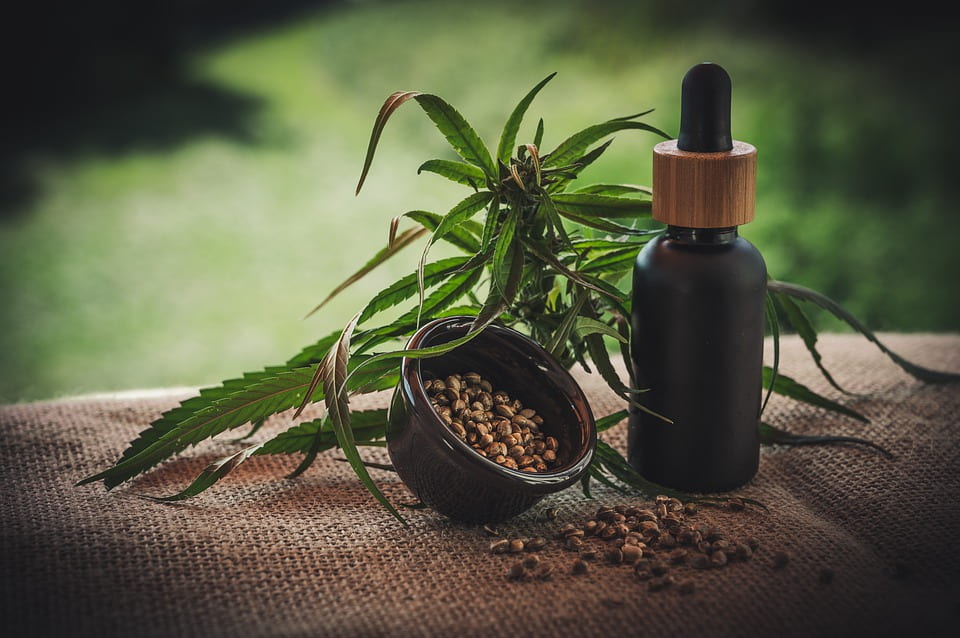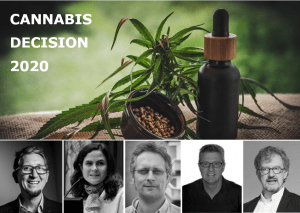By Benedikt Fischer –
Have under-age children in your life? Chances are you will hold crucial decision-power in New Zealand’s upcoming referendum on cannabis legalisation
**Benedikt Fischer will be speaking at a discussion panel at the University of Auckland with a range of international experts on Thursday 17 November.
Find our more and register.
New Zealand is on track towards a referendum in November 2020 to decide whether non-medical cannabis use will be legalised. About a quarter of New Zealand’s population are minors (under 18 years of age); about a third are part of a family that involve children. So if you are a parent (or grandparent, aunt/uncle), you belong to a key sub-group that will hold crucial decision-power on the outcome of the referendum.
That is due to basic constellations: Public opinion on policy issues concerning morality and behaviour are commonly shaped by firm, ideological blocks on either side of the opinion spectrum that anchor the ‘pro’ and ‘con’ sides, respectively.
It is hard to significantly influence or change these particular opinion blocks. Hence, it is the generally softer ‘middle ground’, with open thoughts in either direction that will strongly influence where the majority will land in this popular decision on the future of cannabis control.
Given their crucial decision-shaping role, parents and guardians of teenage children need to be well informed about the ‘pro’ and ‘con’ arguments of cannabis legalisation, and what the likely implications of policy reform are for the young people they care about. Most cannabis use occurs among young people ages 15-29 years; more than half at least tried it, and as many as a third may be active users. It is most understandable that parents are concerned, and do not want to see youngsters harmed from cannabis-related causes, and so – following basic paternal instincts – are hesitant to freely support any changes in policy that carry the even remote or subjective impression to increase the risk for harm.
But right here is a crucial juncture in thinking, where the mind – and ample misleading information in circulation – can lead to fundamentally erroneous assumptions, suggesting that the 2020 referendum on cannabis legalisation is a vote for or against the availability of and use of cannabis. This assumption is fundamentally false as cannabis is already widely used and available in New Zealand, albeit as an illegal drug, and as much so as ever in its decades of criminalised existence that began with the end-goal of purging cannabis from Western societies.
Rather, the upcoming referendum is about whether to bring currently illegal cannabis use, supply and distribution into a realm of legality, with the overarching public health goals to actively regulate products and distribution, to keep those who make the decision to use it healthier and safer, and to overall better protect young people’s wellbeing as related to cannabis (whether they use it or not).
In order to assess whether legalisation would indeed bring the realistic potential to better protect the health and welfare of young people, several key issues require thoughtful consideration.
While cannabis use results in overall less health harms than alcohol or tobacco, it is a drug that comes with risks for various adverse health outcomes from use. These, for example, can include acute or long-term cognitive or mental impairment; injuries (and some deaths) from cannabis-impaired driving, and dependence and educational attainment problems.
However, it is important to realise that these problems occur mainly in minorities of high-risk cannabis users. Science has demonstrated consistently that these are largely limited to those who begin cannabis use early in life, use intensively (eg daily) as well as consume high-potency cannabis products.
Yet, with prohibition currently rendering all cannabis use and products categorically illegal, there are no legitimate or systematic protections against any of these risk factors. Cannabis products distributed today are un-regulated and of uncertain properties; a purchase or other distribution involves an illegal transaction from often questionable or criminal sources (with possibly other illegal wares, or drugs, on offer), and no teacher or health professional can give open advice to a teenager on how to use cannabis more safely.
Thus, the ‘iron law of prohibition’s’ consequences have contributed to the fact that today’s cannabis use among young people has substantially increased in key harm as amplified by the above-mentioned risk dynamics. Any young cannabis user today – if in the wrong place at the wrong time, and especially so if socio-economically disadvantaged – can also arbitrarily get entangled with the criminal justice system in ways that can do a lot of serious harm to their lives.
Ideally, for health and other reasons, teenagers will not use and delay cannabis use until they are of adult age. Given that this is unrealistically wishful thinking for many of them, the quintessential question for concerned parents for the legalisation referendum is whether a teenager’s wellbeing can at least be somewhat better protected with legal and regulated cannabis than through criminalisation.
And by all accounts, we can reasonably expect overall improved safeguarding of vulnerable, young people from a reformed cannabis governance regime that involves a legal, limited cannabis supply strictly regulated for potency and safety; tightly controlled distribution that does not rely on criminal markets or transactions; and active, direct, and fact-based education on cannabis use and risks (including safer use advise for users). In addition, legalisation will largely remove the arbitrary and blunt tool of law enforcement on a matter that is really for health- and education-based strategies to address.
However, in order to make cannabis legalisation a more consistently appealing and sensible policy option for parents concerned with public health, the Government needs to adjust a few aspects of its plans.
First, it needs to drop the implied suggestion that legalisation will majorly reduce cannabis use among young people. There is no reason, other than political opportunism, to assume or advertise such an outcome. Available data from jurisdictions which have implemented legalisation have found no increases in young people’s use – but rather increases among middle-aged population groups.
Second, there needs to be reconsideration of the proposed age limit of 20 years for legal cannabis use. This limit appears random, and is not plausibly advised by relevant scientific data. Rather, it would mean that many young cannabis users are actively excluded from the desired direct benefits of legalisation (including access to legal and regulated products).
Moreover, the proposed limit makes little sense for basic proportionality in a jurisdiction that currently has no age limit for the use of alcohol – a drug that poses more overall risk to young people’s health than cannabis.
Third, the Government should remove the ‘home-growing’ of cannabis provision from its legalisation plans. In a legalisation framework guided by public health, cannabis production with possible direct environmental health, diversion and use exposure risks for young people does not belong in people’s living environments.
In sum, parents and guardians of young people will make up a pivotal decision-making group with major stakes in New Zealand’s upcoming referendum on cannabis legalisation. Their concerns for the health and wellbeing of young people in their lives are both valid and paramount. While this may not readily be evident to all, legalisation and strict regulation of cannabis offers ways to more effectively protect the health and well-being of young people than the blunt and failed tool of criminalisation.
However, there is considerable development work required in New Zealand to reasonably achieve these ends, as well as towards communicating the presumed benefits of legalisation to those with a primary focus on the wellbeing of young people.
Benedikt Fischer, PhD, is the Hugh Green Foundation Chair in Addiction Research and Professor, Faculty of Medical and Health Sciences, at the University of Auckland. He has worked on issues of cannabis, public health and policy for more than two decades, and acted as a scientific advisor to Canada’s government in the development of its cannabis legalisation framework.





